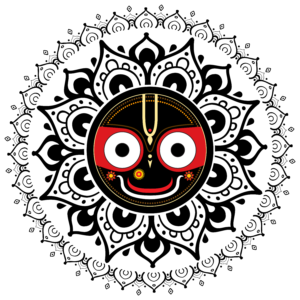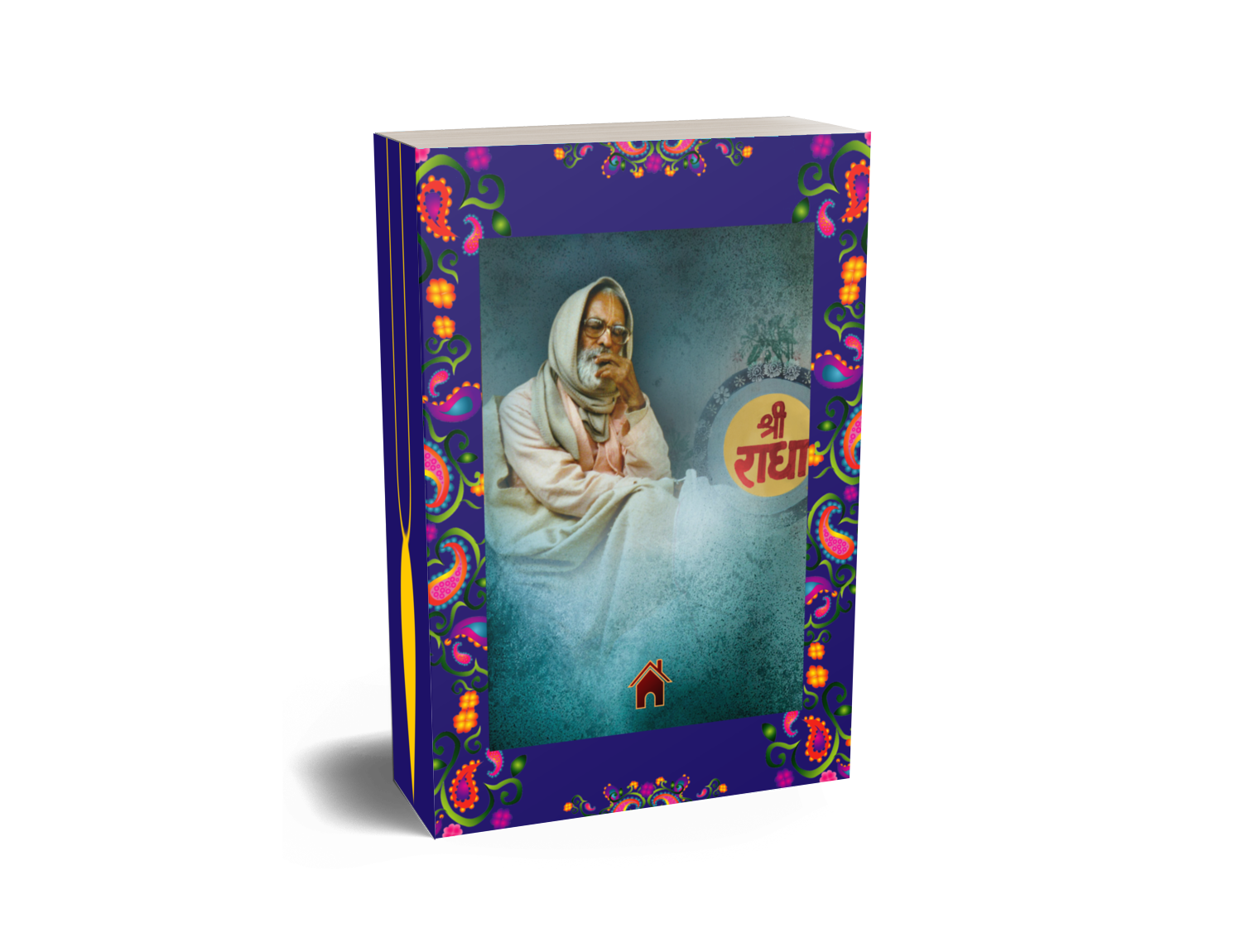

The following is a transcription of a discourse delivered by Śrīla Bhaktivedānta Nārāyaṇa Mahārāja in Mathurā, on April 13, 2000
Janaka Mahārāja had given the definition of bhakti to Lord Rāma’s brother, Bharata.
anyābhilāṣitā-śūnyaṁ
jñāna-karmādy-anāvṛtam
ānukūlyena kṛṣṇānu-
śīlanaṁ bhaktir uttamā
Bhakti-rasāmṛta-sindhu (1.1.11)
“One who has no other desire than to please Kṛṣṇa, and who is not influenced by the process of jñāna-mārga (cultivation of knowledge) karma, and so on, is situated in pure bhakti.”
The king told him that nothing can control prema (pure love of God); it has its law. One who has prema will always consider the desires of his object of love. He has no personal interest. He will always think, “How will my beloved be pleased?” Our real purpose is to please our worshipful deity, God and Guru; not to please ourselves.”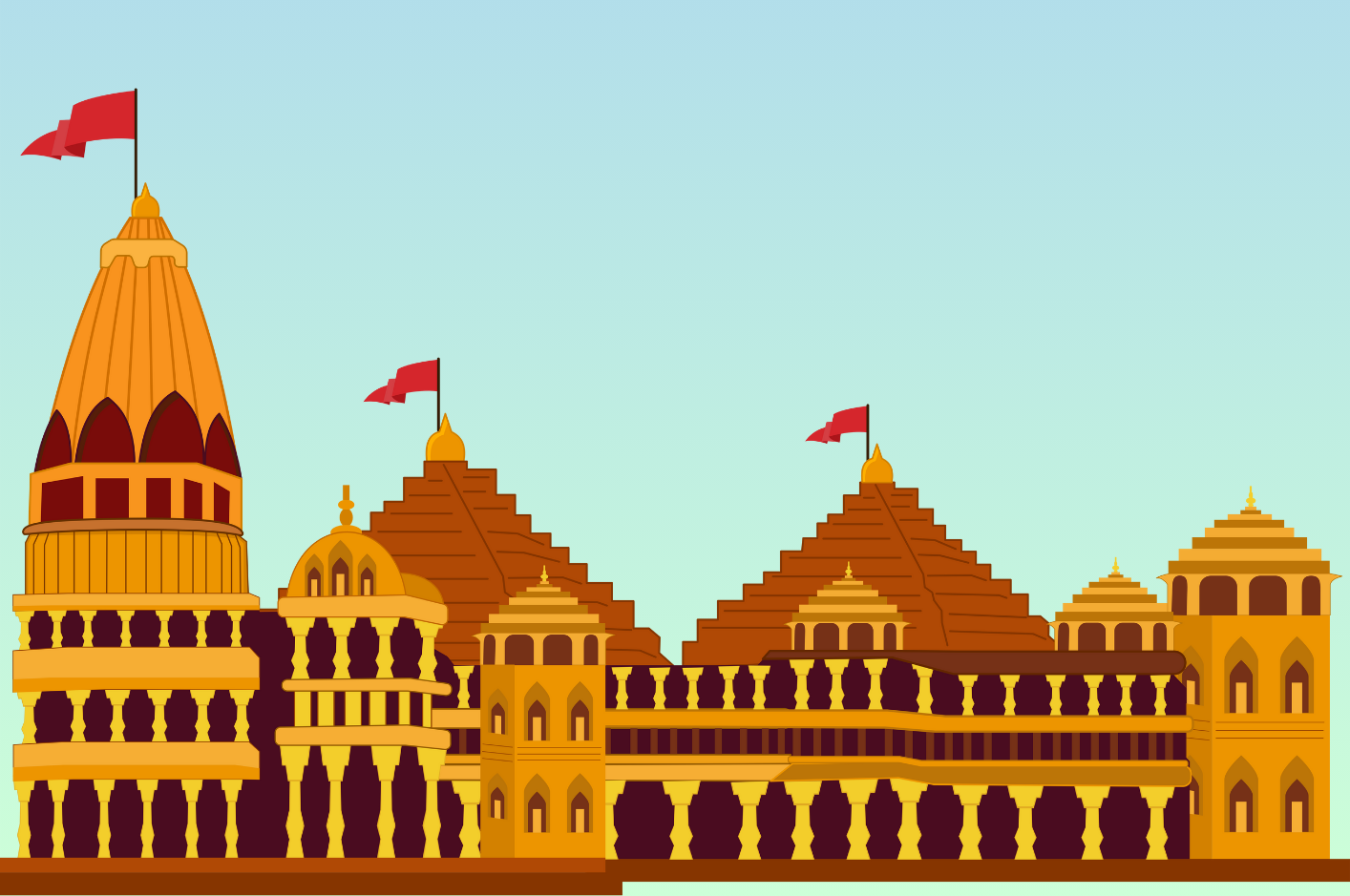
After Rāvaṇa was killed, Sītā-devī had to undergo the agni-parīkṣā, fire test. Of course, Māyā-Sītā entered the fire, and the real Sītā-devī remained unharmed – proving that she was completely pure and chaste. Rāma then gave the kingdom of Rāvaṇa to Vibhīṣaṇa, Rāvaṇa’s brother and after that he took Sītā-devī and all Their associates to Ayodhyā on a mystic aeroplane. There were millions and billions of associates, but this aeroplane was able to expand so that they could all fit on it.
On their journey, Rāma pointed out to Sītā all the places where they had enjoyed pastimes together, or where he 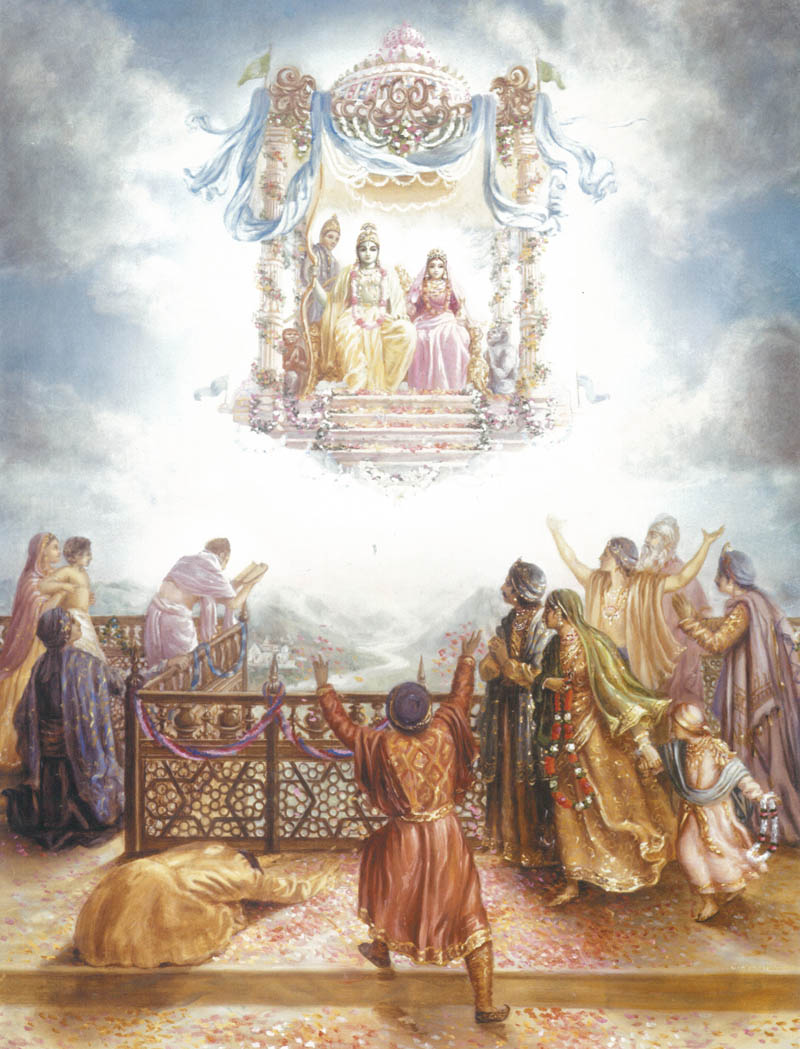 and Lakṣmaṇa had killed various demons. For example, Rāma would say, “Oh look, here is where we built the bridge to Laṅkā. Do you remember?” When they reached Kiṣkindhā, where all of Rāma’s monkey associates lived, they stopped. Sītā-devī invited all the wives of the monkeys to come aboard the aeroplane, as they were also very interested in seeing Rāma’s coronation.
and Lakṣmaṇa had killed various demons. For example, Rāma would say, “Oh look, here is where we built the bridge to Laṅkā. Do you remember?” When they reached Kiṣkindhā, where all of Rāma’s monkey associates lived, they stopped. Sītā-devī invited all the wives of the monkeys to come aboard the aeroplane, as they were also very interested in seeing Rāma’s coronation.
They stayed one night and then went to Citrakūṭa. Hanumān took the form of a brāhmaṇa and went to the place where Bharata was staying in Nandigrāma. Bharata was living the life of a renunciate, wearing simple clothes, with matted hair, and living on fruits and roots; and all of his ministers lived in the same way. In the guise of a brāhmaṇa, Hanumān approached Bharata and said, “Oh Bharata Mahārāja, Rāma has come. Prepare to welcome him!” Upon hearing that his dear brother had finally returned, he was overjoyed and fainted. When he came to consciousness he said, “I want to give you many gifts. So please accept 18,000 cows, as many beautiful women as you desire, horses and other wealth. Still I cannot give you anything equal in value to the news you gave me.” Hanumān then returned to his original form, and Bharata said, “Oh, you are Hanumān!”
After Rāma’s abhiṣeka ceremony, he wanted to give many gifts to everyone. Sītā-devī thought of a very nice gift to give Hanumān. She gave him Her most beautiful pearl necklace. Hanumān took it, examined it, and then broke it. The pearls scattered all over the floor. Sītā-devī was surprised and asked, “What are you doing?” Hanumān replied, “Oh, I was just seeing if ‘Rāma’ is written anywhere here.” “But don’t you know Rāma is in your heart?” she said. Then Hanumān tore open his chest. In this way, Rāma’s associates teach us that whatever is given to others should be in connection with Kṛṣṇa.
Lord Rāma and Sītā-devī stayed together for many years, and everyone was very happy within the kingdom. 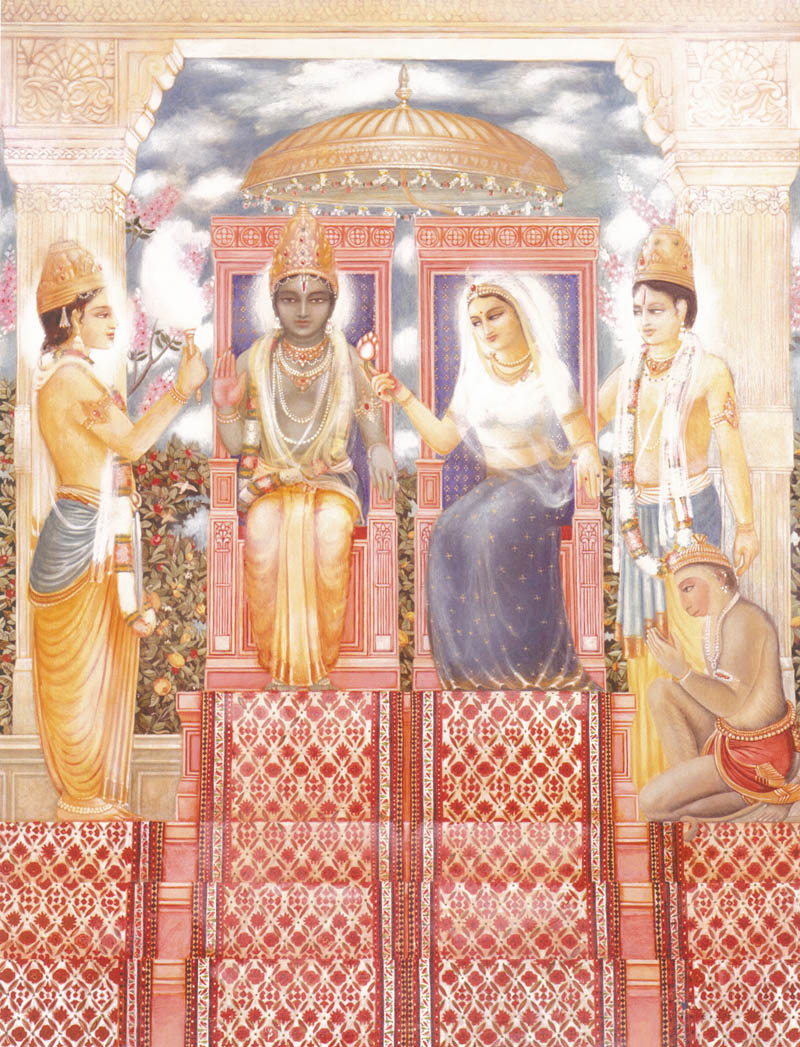 Some people, however, criticized Rāma for accepting Sītā back after she had been in the palace of Rāvaṇa. According to Vedic principles, it is unacceptable to accept one’s wife back after being away for one night – what to speak of one year. One evening, the wife of a washerman came home late. Her husband immediately told her that she could not enter the house. He threw her out saying, “I am not like Rāma who accepted His wife back after she’d been with another man.”
Some people, however, criticized Rāma for accepting Sītā back after she had been in the palace of Rāvaṇa. According to Vedic principles, it is unacceptable to accept one’s wife back after being away for one night – what to speak of one year. One evening, the wife of a washerman came home late. Her husband immediately told her that she could not enter the house. He threw her out saying, “I am not like Rāma who accepted His wife back after she’d been with another man.”
This news spread and the story got back to Rāma. He was most disturbed and realized that He had to do something. How could He rule a kingdom where some of the people did not have faith in Him? He called a meeting, asking all of His brothers to come, but none of them could give him any advice. He then realized what to do. He remembered that Sītā always wanted to visit all the sages in the forest and shower them with gifts. He asked Lakṣmaṇa to take Her to the āśrama of all the sages, deliver His sorrowful message to Her, and then leave Her in the forest. Lakṣmaṇa was devastated that he was called upon to do this, but he could not say anything, as he was Rāma’s younger brother. He therefore had to accept that responsibility.
Sumanta was Lakṣmaṇa’s chariot driver and a very great minister of Rāma. Lakṣmaṇa told everything about Rāma’s order to Sumanta. He said, “My life is full of miseries. Now, today is the biggest misery of my life!” They passed Prayāga and went across a river. “Vālmīki’s āśrama is here,” Lakṣmaṇa told Sītā. Then, with a heavy heart he told Her, “Everyone is accusing Rāma of accepting an unchaste wife. Many people don’t have full faith in Him now; so how is it possible for Him to rule the kingdom and guide the citizens properly?”
When Sītā-devī heard this she fainted, and when revived, she said, “I don’t want to create any difficulties for Him. He shouldn’t be disturbed by the public. Please pay My obeisances to all. Lakṣmaṇa, I want to pray at your lotus feet as I have offended you twice. The first night in Ayodhyā, after our marriage ceremony, I stopped you from massaging Rāma’s lotus feet. Though this had been your cherished duty for many years, I took this away from you. When you asked Rāma about this, He could not answer. Then we asked the great sage Vasiṣṭha and he said, ‘The duties now have to be divided. So Lakṣmaṇa, all the duties outside of the house should be taken by you. Sītā-devī should now perform all the duties inside of the house.’ In this way it was decided.
“Secondly, I was once allured by a deer in the forest when we were in exile. I heard Mārīca call out, ‘Alas 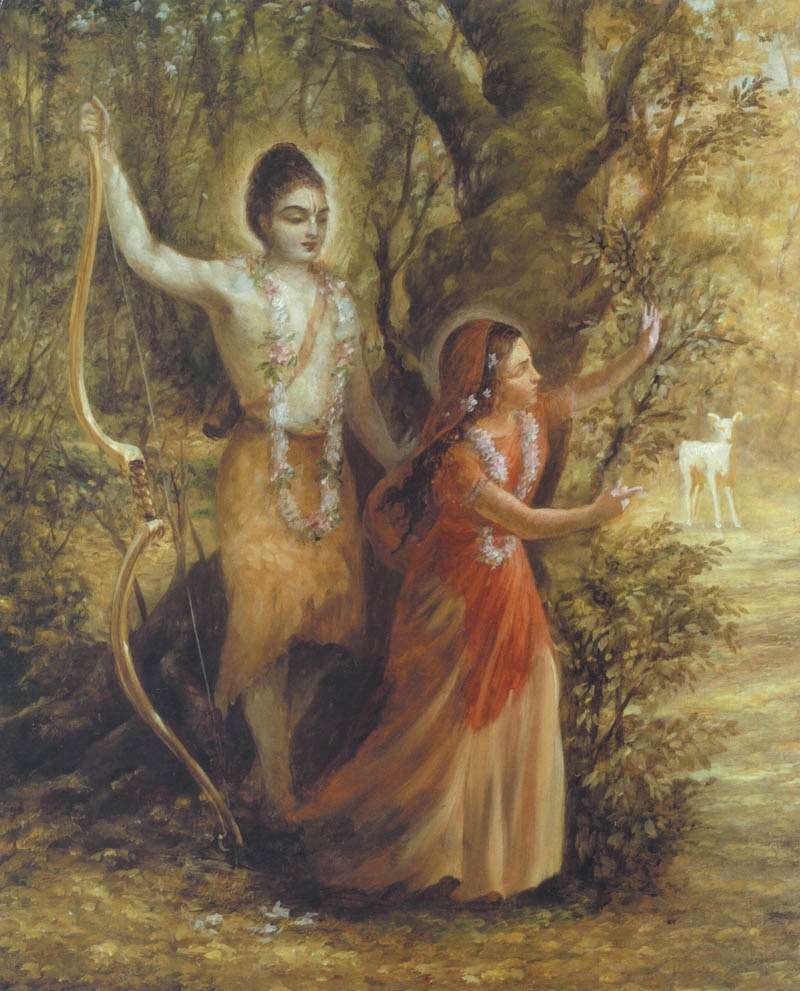 Lakṣmaṇa.’ Assuming it was Rāma’s voice, I told you to go immediately to help Him. You said, ‘No Sītā, it is an illusion created by a demon.’ I insisted and told you, ‘I know. You are a spy of Bharata, and you have lusty feelings for me. That is why you don’t want to save your brother!’ These words pierced your heart. You replied that you always saw me as your mother, and had never even seen my face; you had only seen my feet. You could not bear these harsh words. Then, when you went to see Rāma, he chastised you saying, ‘Why did you take heed of the words of that woman?’ Then Rāvaṇa came here and begged, ‘bhikṣām dehi‘ three times. When I did not want to come outside of your circle of protection he threatened me, ‘I curse you that your husband will die if you do not give anything to me here!’ So please forgive me for these offences.”
Lakṣmaṇa.’ Assuming it was Rāma’s voice, I told you to go immediately to help Him. You said, ‘No Sītā, it is an illusion created by a demon.’ I insisted and told you, ‘I know. You are a spy of Bharata, and you have lusty feelings for me. That is why you don’t want to save your brother!’ These words pierced your heart. You replied that you always saw me as your mother, and had never even seen my face; you had only seen my feet. You could not bear these harsh words. Then, when you went to see Rāma, he chastised you saying, ‘Why did you take heed of the words of that woman?’ Then Rāvaṇa came here and begged, ‘bhikṣām dehi‘ three times. When I did not want to come outside of your circle of protection he threatened me, ‘I curse you that your husband will die if you do not give anything to me here!’ So please forgive me for these offences.”
After leaving Sītā-devī in the forest Lakṣmaṇa lamented, “Oh alas! I will surely give up my life!” Sumanta tried to pacify him and told him the truth of the matter. “Once I was with Dāsaratha Mahārāja, and two sages, Vasiṣṭha Ṛṣi and Durvāsā Muni, had come to visit him. Mahārāja Dāsaratha served them very nicely and then asked them to kindly tell him about the future of his four children. Vasiṣṭha Ṛṣi remained silent and Durvāsā Muni responded by saying, “Oh you have four sons. Very good.” Dāsaratha Mahārāja said, “Yes, first tell me about Rāma’s future.” Durvāsā said, “Rāma’s future will undoubtedly be full of miseries. He will have to leave Ayodhyā and everyone will feel so much separation from Him. You will not be able to bear His absence and you will die in separation. Rāma will later have to be separated from his wife, and after suffering immensely they will become reunited. Then again they will have to be apart; Rāma will rule the kingdom alone without his wife. Do not tell this to anyone.” Dāsaratha Mahārāja was in complete shock, but he promised that he would not speak what he had heard to anyone. He said, “From today I am your disciple.”
Having heard this from Sumanta, Lakṣmaṇa realized that his brother Rāma is the Supreme Lord Viṣṇu. Sumanta 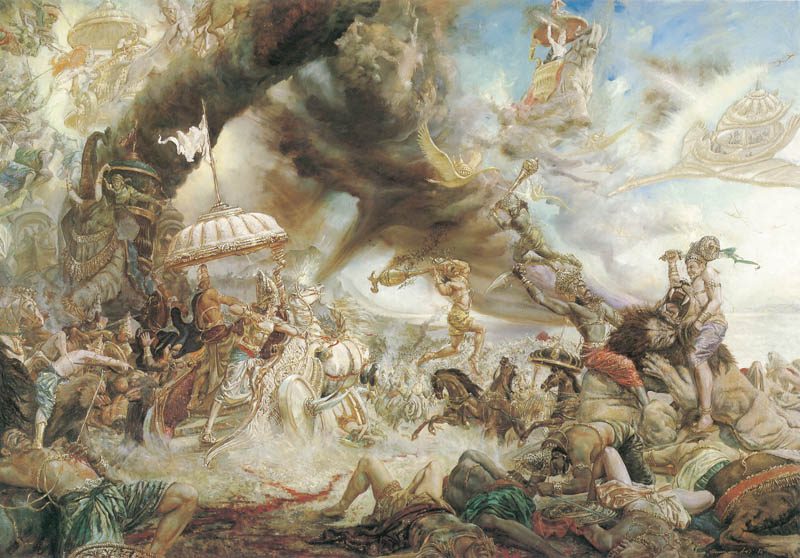 continued telling Lakṣmaṇa the story that Durvāsā Muni had told to Dāsaratha Mahārāja. “Once, a very big fight ensued between the demigods and the demons. The demons were defeated and went to the wife of Bṛghu Mahārāja to take shelter; and, being very merciful, she sheltered them. The demigods went to Vāmanadeva and told him the situation. He then took His cakra and beheaded Bṛghu Mahārāja’s wife. Bṛghu Mahārāja was very upset and cursed Vāmanadeva saying, “You are responsible for my wife’s death. I loved her very much. Now I will have to suffer so much in separation from her. For this I curse you that you will have to suffer in the same way in the future. You will have a very beautiful wife who will serve you in every way. You will be fully satisfied and completely enamoured with her feminine grace and charm, and her saintly qualities. You will then be separated from her, and you will always suffer immensely from that pain of separation.” Hearing this, Vāmanadeva happily accepted the curse. He knew that in the future the whole world would benefit from this. Also, this was but a pretext, as separation naturally increases the happiness of meeting.
continued telling Lakṣmaṇa the story that Durvāsā Muni had told to Dāsaratha Mahārāja. “Once, a very big fight ensued between the demigods and the demons. The demons were defeated and went to the wife of Bṛghu Mahārāja to take shelter; and, being very merciful, she sheltered them. The demigods went to Vāmanadeva and told him the situation. He then took His cakra and beheaded Bṛghu Mahārāja’s wife. Bṛghu Mahārāja was very upset and cursed Vāmanadeva saying, “You are responsible for my wife’s death. I loved her very much. Now I will have to suffer so much in separation from her. For this I curse you that you will have to suffer in the same way in the future. You will have a very beautiful wife who will serve you in every way. You will be fully satisfied and completely enamoured with her feminine grace and charm, and her saintly qualities. You will then be separated from her, and you will always suffer immensely from that pain of separation.” Hearing this, Vāmanadeva happily accepted the curse. He knew that in the future the whole world would benefit from this. Also, this was but a pretext, as separation naturally increases the happiness of meeting.
Sītā-devī was walking towards the āśrama of Vālmīki Ṛṣi, when some of his brahmacārīs spotted her. They informed Vālmīki that a lady looking like a demigoddess was coming. Vālmīki came out to greet her and immediately recognized who she was. He said, “Oh, you are Sītā-devī, the wife of Lord Rāma. I know this because I have written the Rāmāyaṇa. Please come in.” The ladies there were very pleased to see Sītā-devī and said, “Oh, please allow us to serve you.” Vālmīki instructed them how to serve Her in every way.
When Rāma sent Śatrughna to Mathurā, He happened to come near to Vālmīki’s āśrama on the way. He paid obeisance to Sītā-devī and her sons, Lava and Kuśa, from a distance. Lava and Kuśa were brilliant children. Vālmīki was very expert in archery, singing and music, and he taught Lava and Kuśa all these arts. They could thus sing in all rāgas very sweetly. Vālmīki also taught them the entire Rāmāyaṇa.
No one in the entire kingdom was there to console Rāma. However, the ladies were there to console Sītā-devī in  the āśrama of Vālmīki. One day Rāma turned to Vasiṣṭha Ṛṣi and said, “Will you please perform a sacrifice?” Vasiṣṭha replied, “Then you must call your wife back.” “Oh, I cannot do that.” “Then you must remarry,” he insisted. Rāma said, “It is not possible.” “Then you will have to make a golden deity of Sītā-devī.” Vasiṣṭha then performed the sacrifice. Every year he performed a very big sacrificial ceremony for Rāma, near Naimiṣāraṇya on the bank of Gomatī, with a new golden deity of Sītā-devī each year.
the āśrama of Vālmīki. One day Rāma turned to Vasiṣṭha Ṛṣi and said, “Will you please perform a sacrifice?” Vasiṣṭha replied, “Then you must call your wife back.” “Oh, I cannot do that.” “Then you must remarry,” he insisted. Rāma said, “It is not possible.” “Then you will have to make a golden deity of Sītā-devī.” Vasiṣṭha then performed the sacrifice. Every year he performed a very big sacrificial ceremony for Rāma, near Naimiṣāraṇya on the bank of Gomatī, with a new golden deity of Sītā-devī each year.
One year, many kings and sages were called, and Vālmīki came with Lava and Kuśa. The boys were extremely beautiful, with very broad chests and slender waists. During a rest period, Vālmīki asked them to sing Rāmāyaṇa. They had melodious voices, and they sang in such a heart-rendering way that they captured everyone’s hearts. Rāma was especially touched, and tears came to His eyes. Vālmīki had previously warned the boys, “If anyone asks you who you are, tell them, ‘I am a disciple of Vālmīki’”. Rāma ordered Lakṣmaṇa, “Go and give them eighteen thousand gold coins and many, many beautiful clothes and gifts. Then ask them who they are.”
When they were presented with these gold coins, clothes, and gifts, they said, “What will we do with all these things? We are brahmacārīs.” Then Lakṣmaṇa asked which dynasty they belonged to, and they replied, “You seem very learned. Why ask this? Why not ask who is our Gurudeva? We are disciples of Vālmīki Ṛṣi.” For five or seven days they came and recited the Rāmāyaṇa, and after many days Rāma and others came to know who they were.
Rāma then called Vālmīki and requested that Sītā-devī come and prove her chastity so that he could call her back. Vālmīki said, “I have never spoken a lie in my life. I can assure you that Sītā is completely pure and chaste.” Rāma said, “I know that. I’m quite confident of this, but I want proof for my citizens. So please bring her here. Then we’ll see what we can do.”
At this time Brahmā, Śaṅkara, and so many demigods and goddesses came, curious to see this event. Sītā-devī sent Lava and Kuśa ahead to their father. She arrived thereafter, and Vālmīki spoke gently to her, “O daughter, Sītā-devī. Come forward and prove your chastity.” Sītā-devī said, “Mother, please prove this to one and all, that I 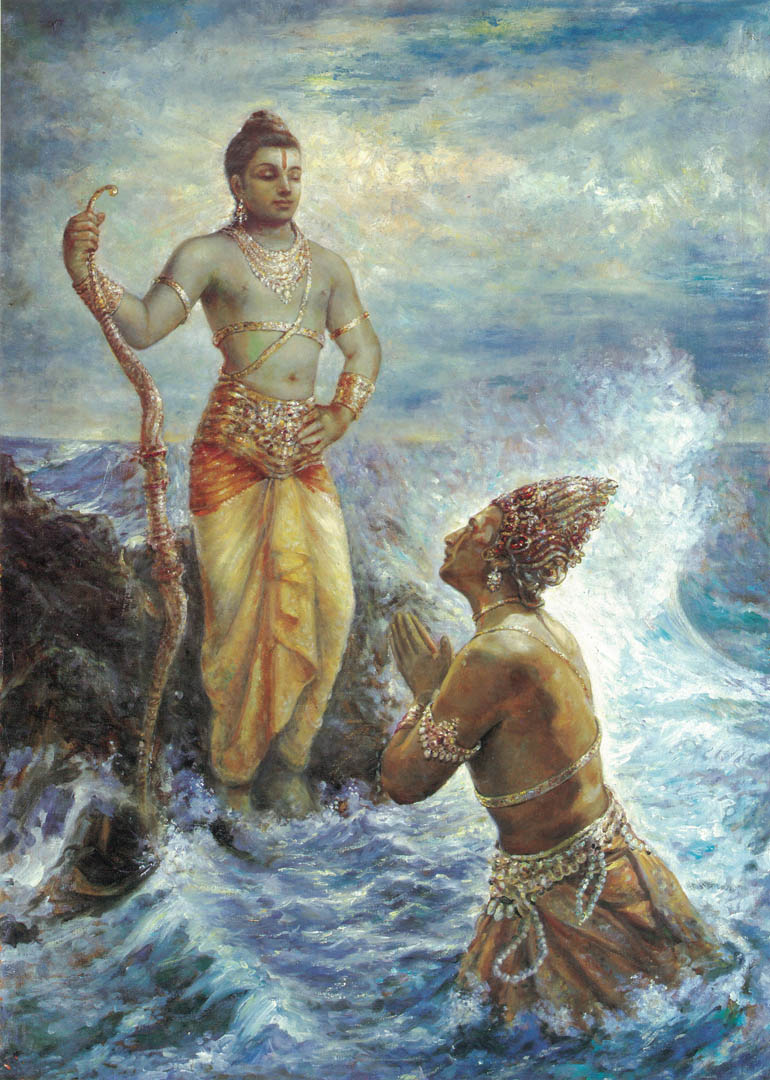 have never served any other man. I have never even had thoughts of any man other than Rāma in my whole life. Please accept me, mother.” Pṛthivī-devī appeared from the earth and Sītā sat on her lap on a golden throne. In a moment Pṛthivī-devī completely covered her. In other words, she took Sītā-devī with her, back under the Earth. Rāma couldn’t bear to see Sītā leave him like this, and he fainted. Then, when he returned to consciousness, he prayed to Pṛthivī-devī, requesting her to bring back Sītā. He told her, “One time I went with a bow to the ocean and he was very much afraid. So I can turn you into dust in a moment.” Just then Brahmā came and told Rāma, “No. Don’t do it! This is the last time. Sītājī has gone to your abode, so you should very quickly wind up your pastimes and go there.”
have never served any other man. I have never even had thoughts of any man other than Rāma in my whole life. Please accept me, mother.” Pṛthivī-devī appeared from the earth and Sītā sat on her lap on a golden throne. In a moment Pṛthivī-devī completely covered her. In other words, she took Sītā-devī with her, back under the Earth. Rāma couldn’t bear to see Sītā leave him like this, and he fainted. Then, when he returned to consciousness, he prayed to Pṛthivī-devī, requesting her to bring back Sītā. He told her, “One time I went with a bow to the ocean and he was very much afraid. So I can turn you into dust in a moment.” Just then Brahmā came and told Rāma, “No. Don’t do it! This is the last time. Sītājī has gone to your abode, so you should very quickly wind up your pastimes and go there.”
Gaura premānande!
Source: Purebhakti.com
Image(s) made possible by Pixabay.com, Krishnapath.org and/or Bhaktiart.net
Unless indicated differently, all verse translations and quotes are from the books by Śrīla Prabhupāda (Vedabase.com)